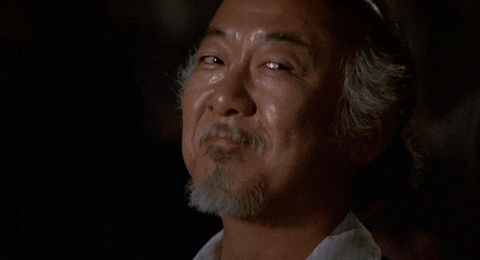John K
Donor
- MBTI
- INFJ
- Enneagram
- 5W4 549
This isn't a position I could take myself for a number of reasons, though I can see your philosophical viewpoint.Haha. No, its that I think there is danger in putting people second in such a philosophy/system. I understand that a concept of 'perfect goodness' etc. is unattainalbe for any human, so see no problem with an ideal being something to aim at only, but to say God is inherently superior and omnipotent etc. makes him out to be a 'being' rather than a concept and bring with it all kinds of issues imo in how we live our lives. It makes the faith something outside of human experience (supernatural) and I'm not comfortable with that. It plays into people putting their 'relationship with God' above that of humans. That's messed up imo. It seems more self-serving to me. Like a drug they are on, which puts humans in a poor second place.
Chewing it over ....
I think it's important to note that history is littered with the remains of ideas that made humans the centre or the apex of the universe only to find that we aren't. At one time we thought the earth was at the centre and everything else revolved around it. But the we found that we are on just a planet, one of the smaller ones, revolving round the sun, and that the sun was a fairly mediocre one amongst countless trillions of others. We thought that the world was created just for people a few thousand years ago, but it was created billions of years ago and people have only been around for a fleeting instant of that time. It's very likely that if there is intelligent life elsewhere in the universe, at least some of it surpasses us in intelligence as much as we surpass the fish in the sea. We could well turn out to be fairly low down the evolutionary scale compared with such as those. There is nothing written into the fabric of space time that says we are apex, and it seems pretty safe to assume we are not.
We live at a time where everyday philosophy is still rooted in the now discredited materialistic viewpoint from the late 19th Century. That seems to put consciousness in the position of an epiphenomenon or even as illusory. It seems to me far more likely that consciousness is as much part of the fabric of the universe as electromagnetism, and it isn't hard from there to imagine the possibility that the universe is in some sense alive. Clearly life is a feature of our world, which seems to be remarkably well tuned to support it in the right circumstances. We humans are clearly embedded in that context, and are certainly not in some sense superior to it.
Another concern I have is that an acceptance of the existence of God is not just a matter of philosophical or ethical choice for most people. I can certainly see it is for you, and that's OK, but that isn't the way most folks would approach it - for most it's a matter of credibility instead. For some of us it is a matter of experience, not belief, and to reject it would be equivalent to rejecting what we can in a sense see.
Yet another angle. I feel that the way you think about it needs to be handled very carefully because it's a position that can lead to the sort of problem Galileo had with the Catholic Church of his day - they objected to his scientific conclusions because they were not consistent with the Church's philosophy. It's normally religious dogma rejecting ideas such as evolution that manifests this problem, but any philosophical framework can fall into this sort of trap. It's a nice thought (Divine justice
Thanks for the discussion by the way - the questions you raise are often very thought provoking.




